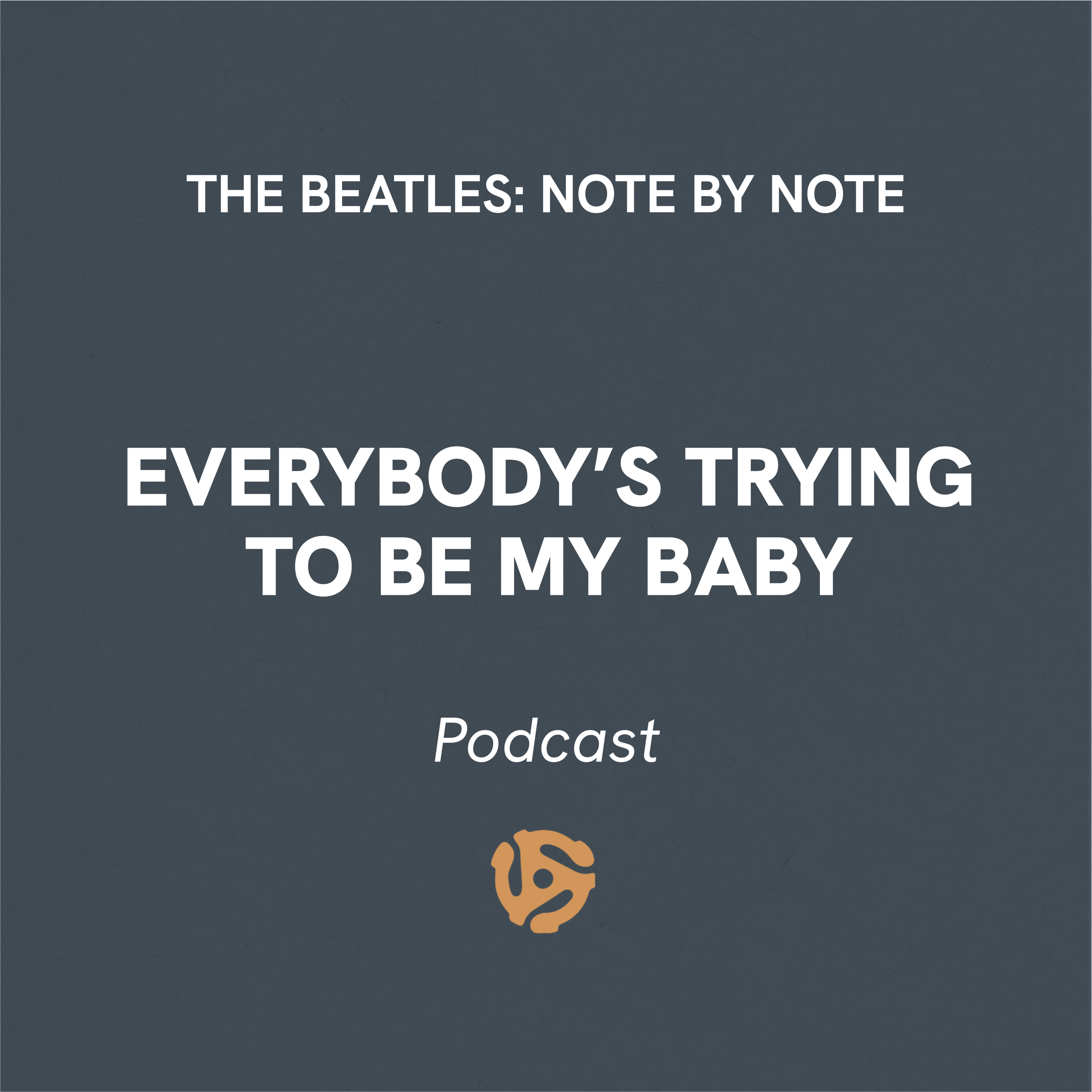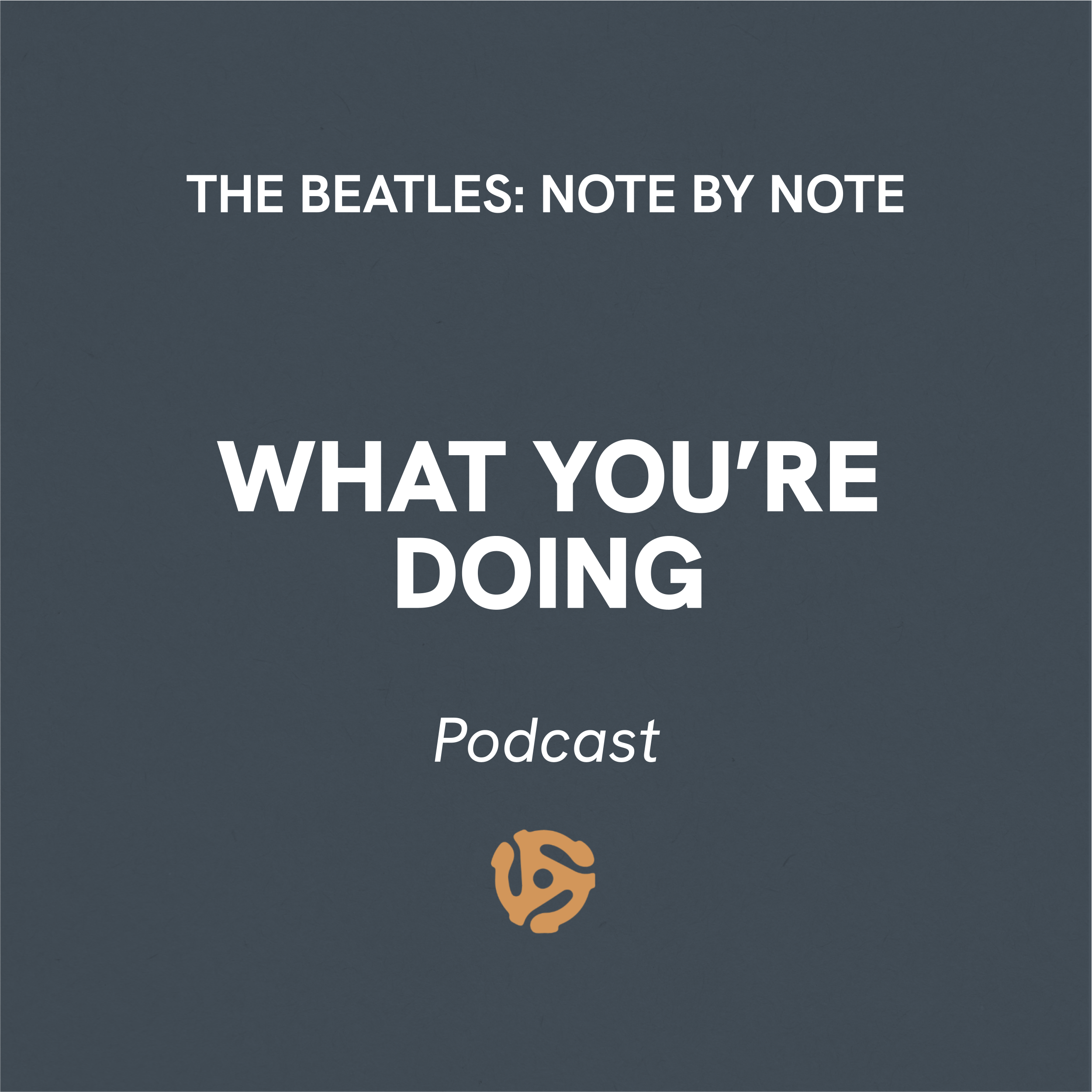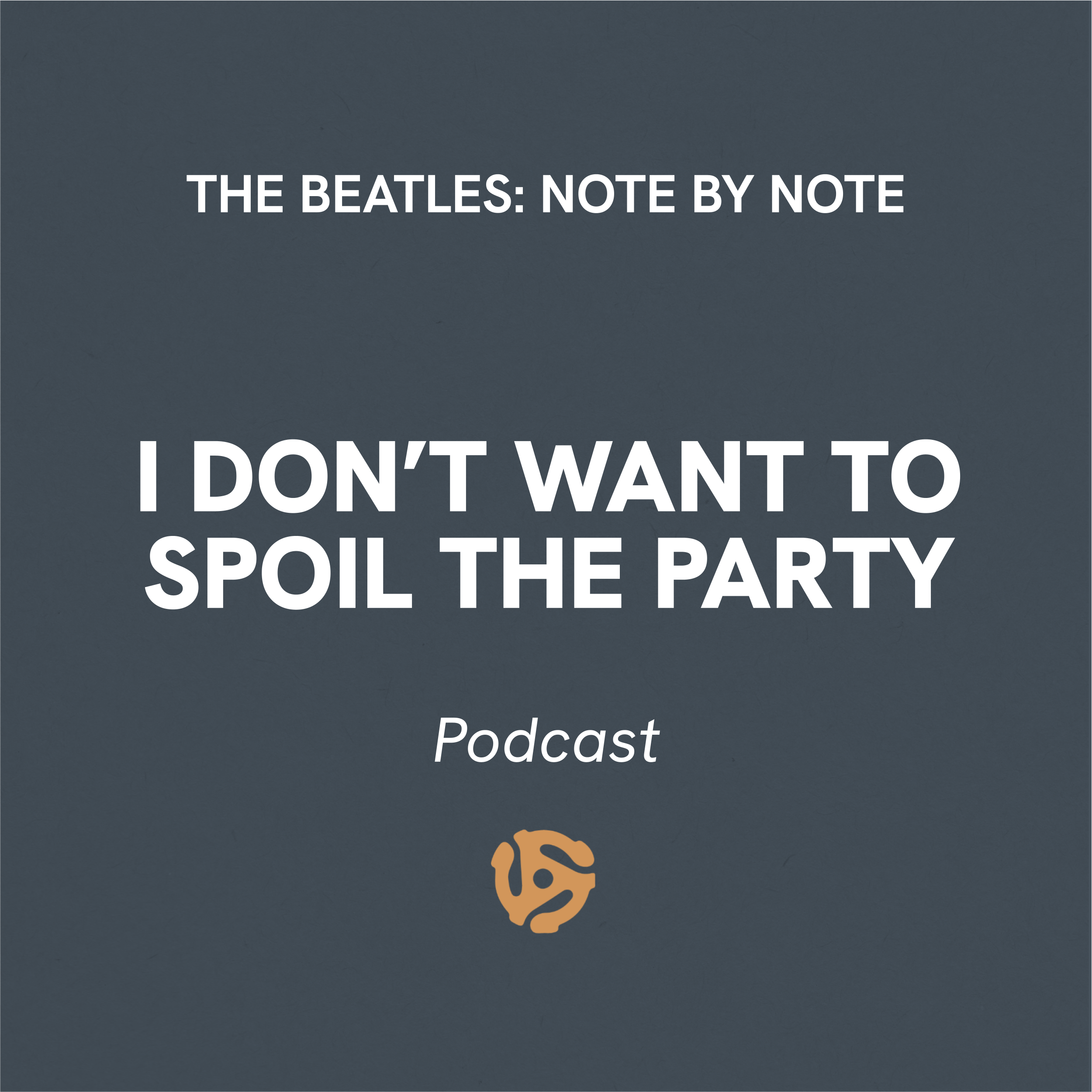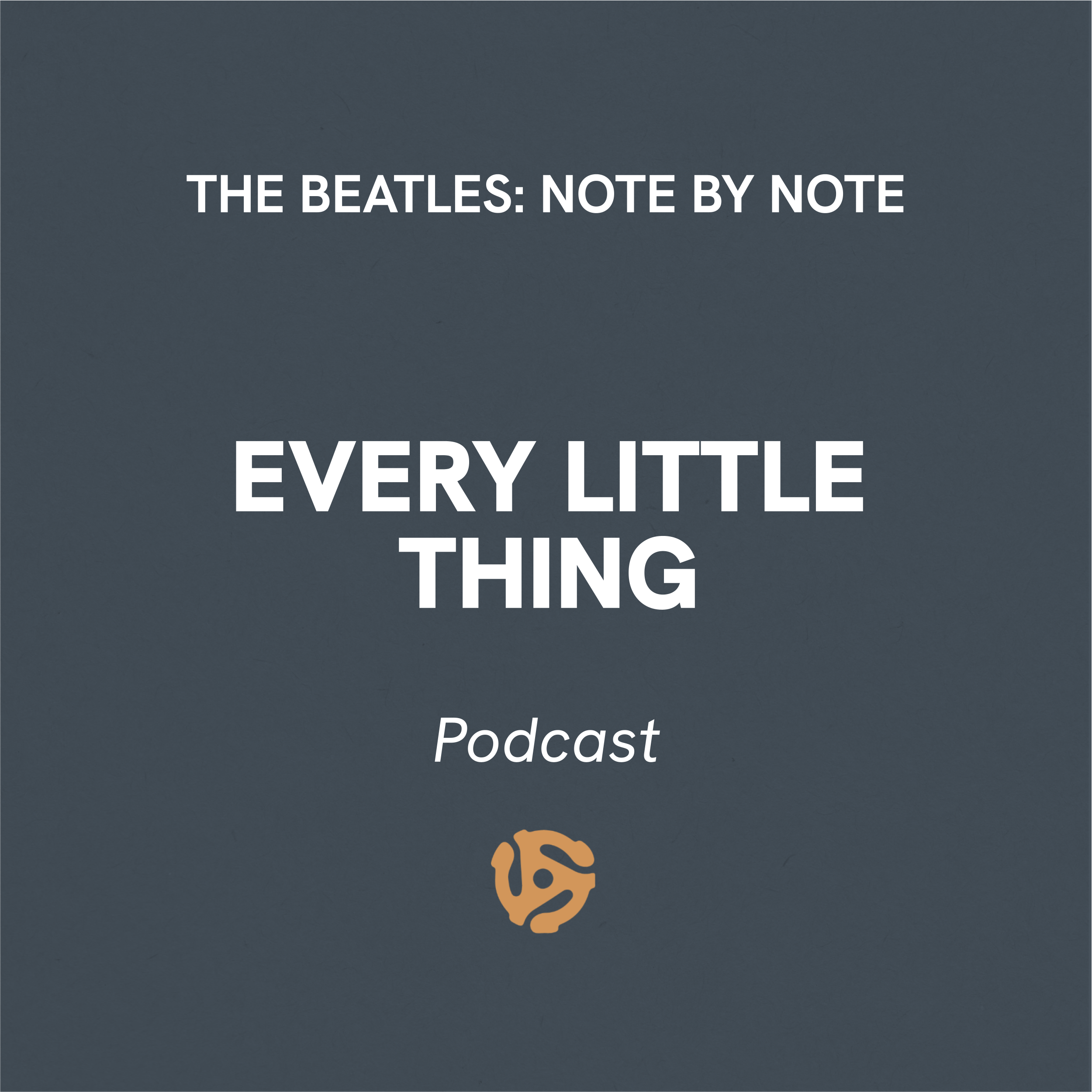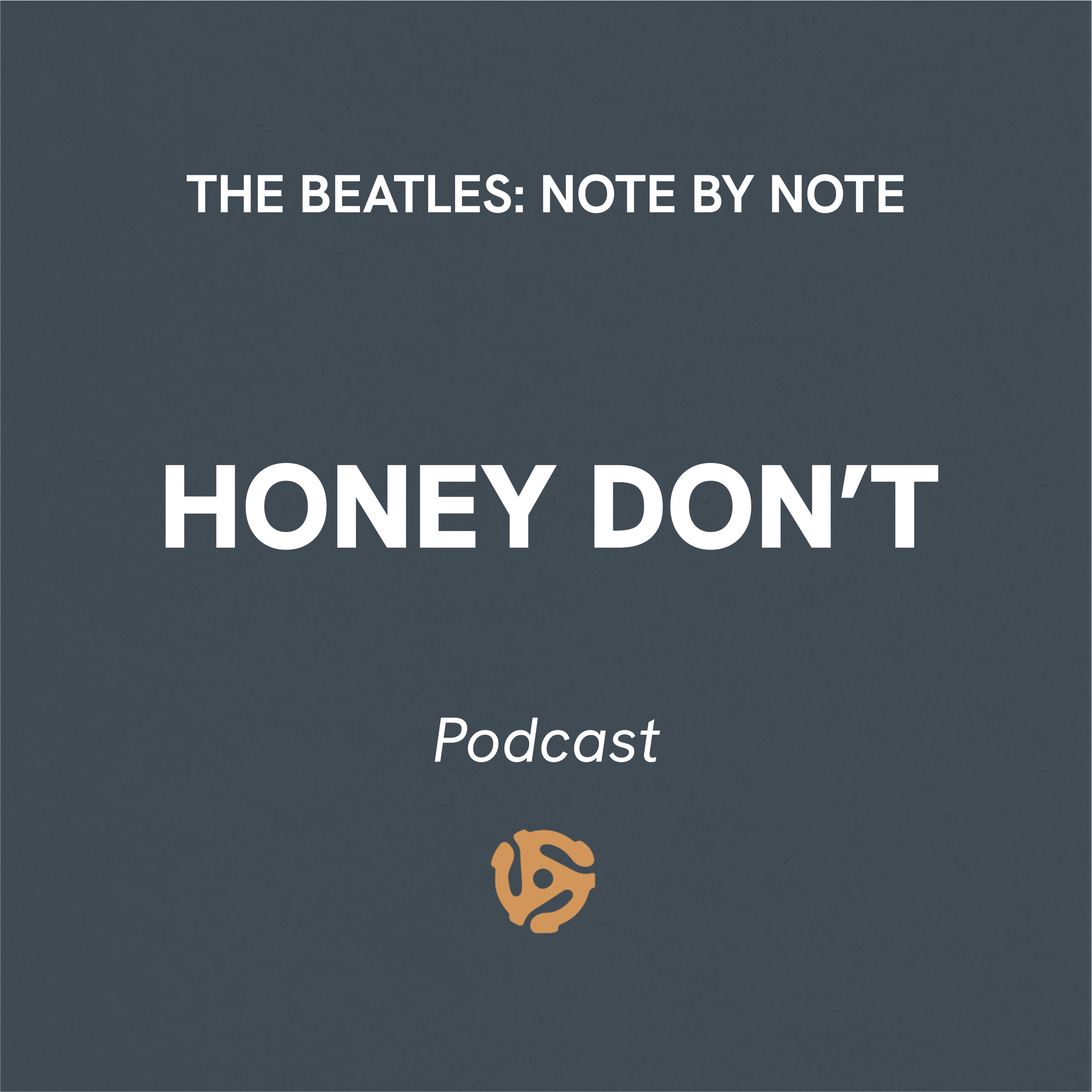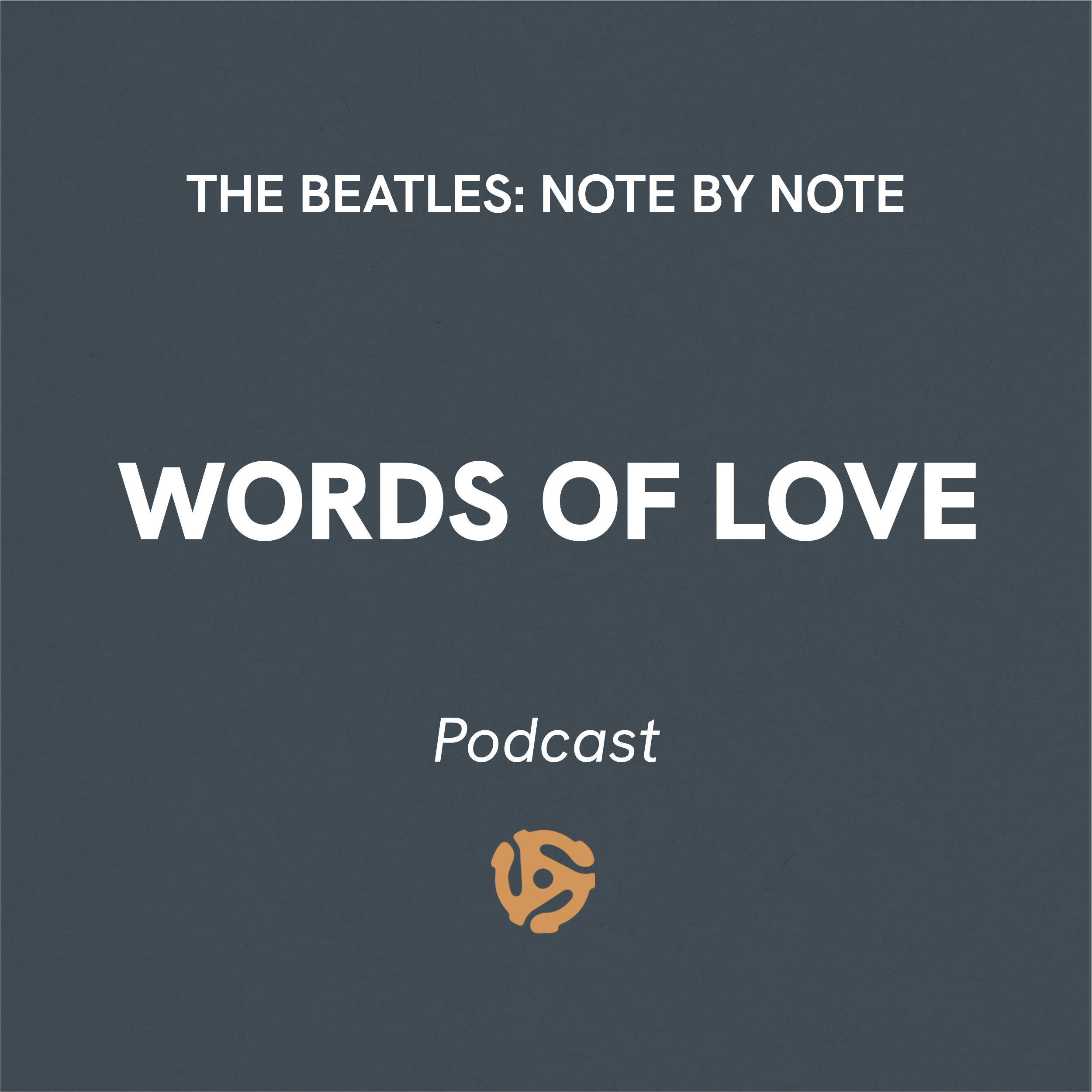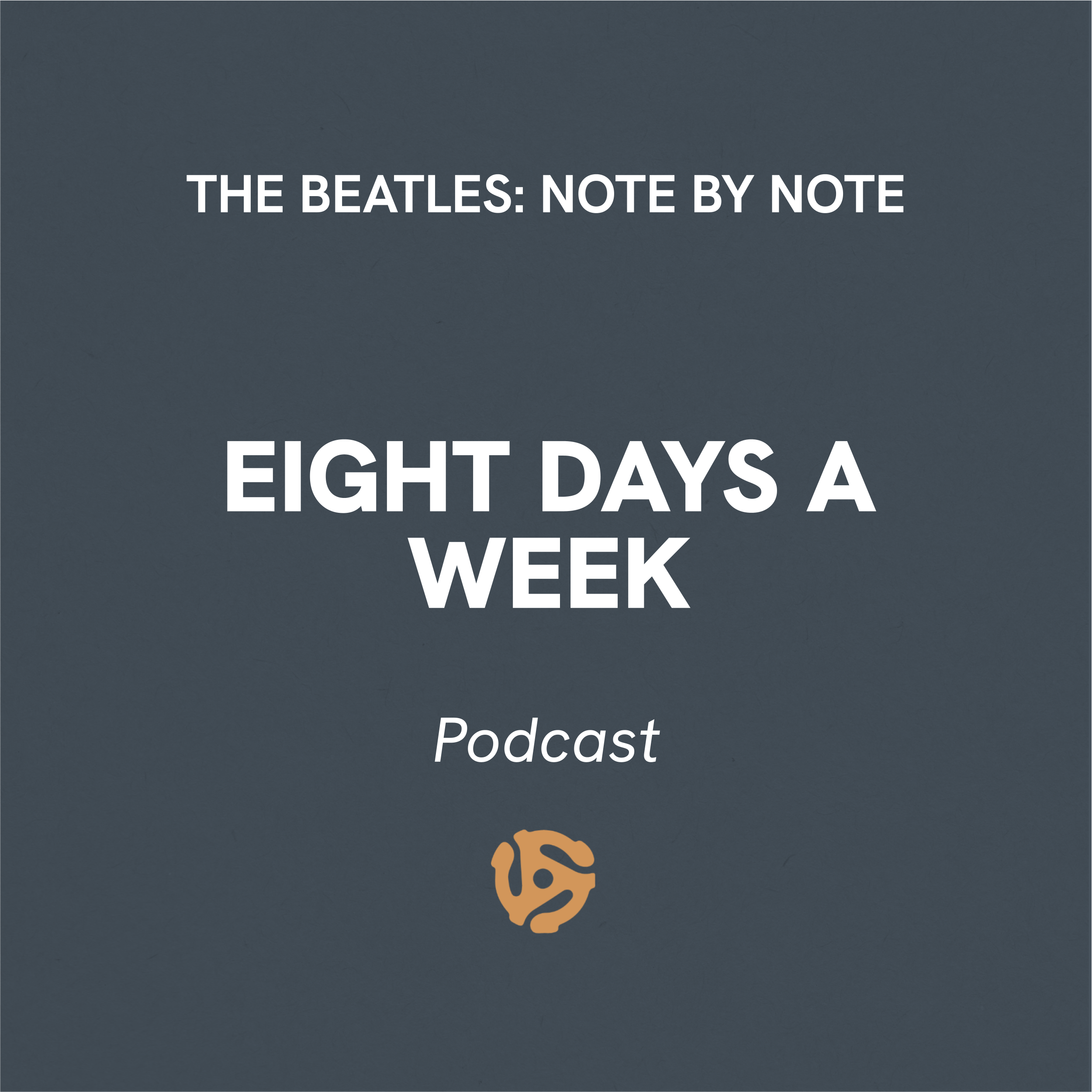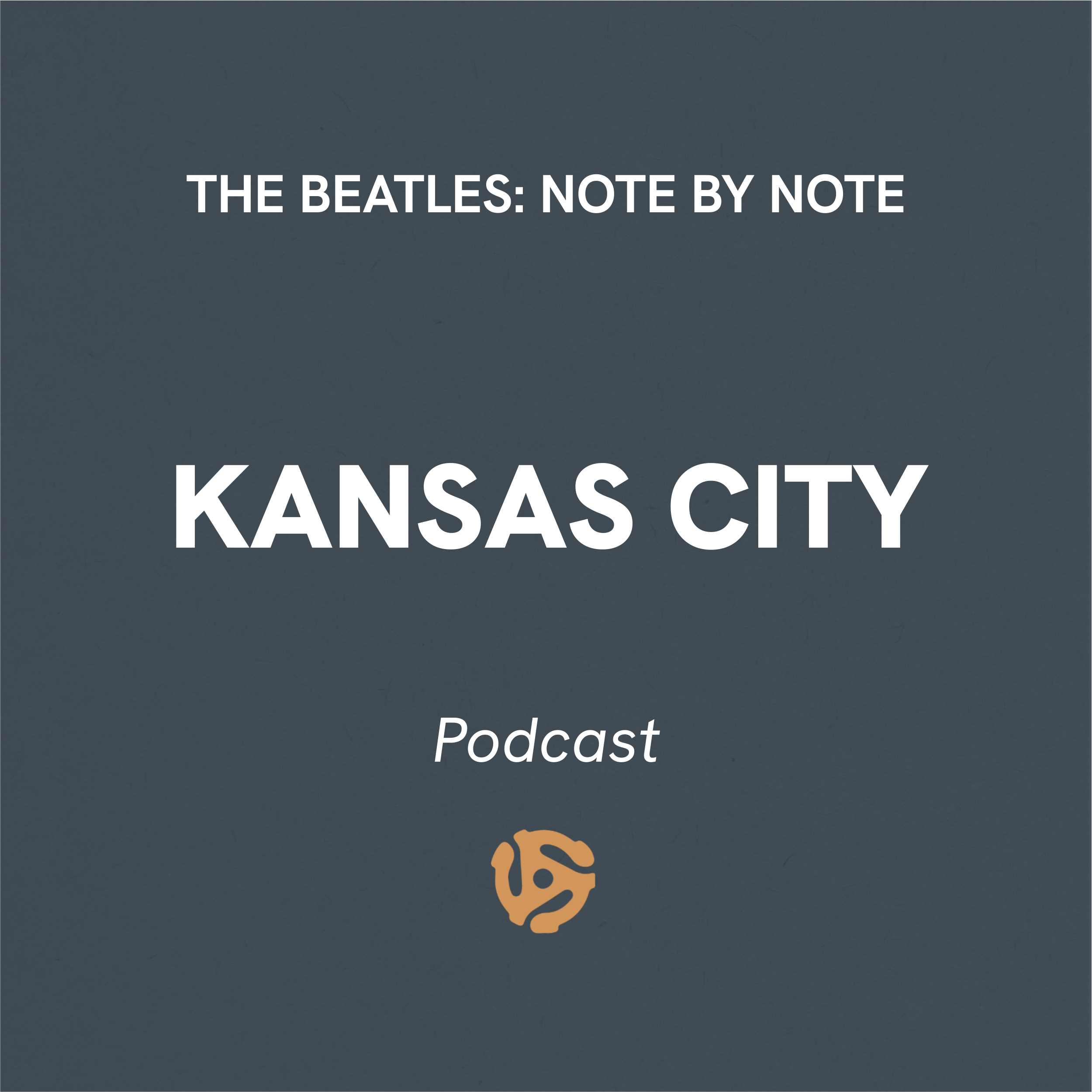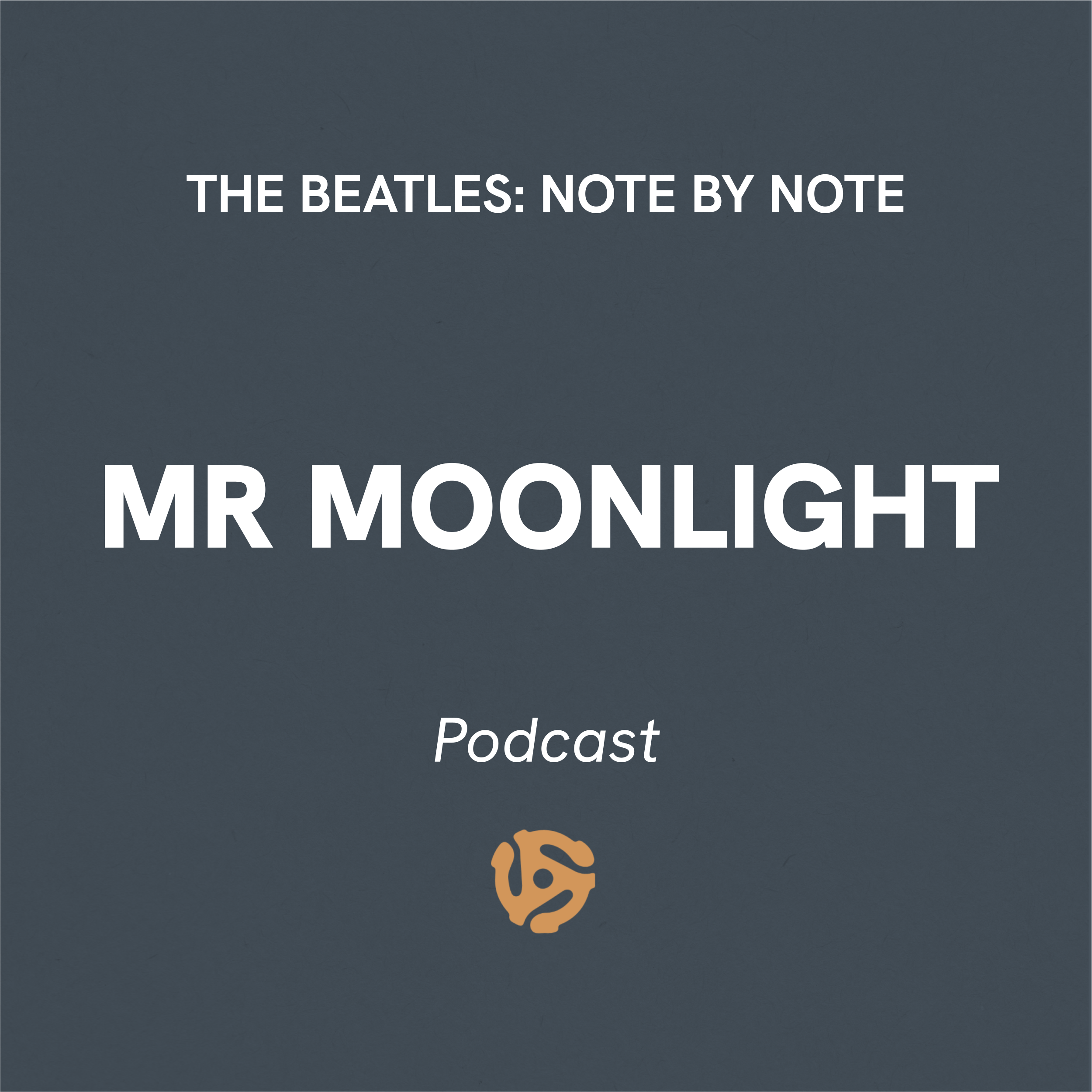“Everybody’s Trying To Be My Baby” – Episode 83 with Dan Rivkin (They May Be Parted)
A Beatles podcast where a “throwaway” closer turns into a full-on investigation with Dan Rivkin, the guy who went second-by-second through the Get Back Nagra tapes. If you’ve ever skipped “Everybody’s Trying to Be My Baby,” this episode is a serious attempt to make you hear why it matters.
We cover:
- Dan Rivkin’s Nagra-tape method and why it changed Get Back study
- Beatles for Sale’s closer, George’s vocal, and what the song is doing as an ending
- Rex Griffin vs Carl Perkins vs The Beatles: what’s actually shared and what’s not
- October 18 session details: one take, overdubs, and early STEED echo on vocal
- Storytime: the 1964 “Another Beatles Christmas Show” pantomime and the live set
Dan Rivkin's website: https://theymaybeparted.com/
“What You’re Doing” – Episode 82 with Raymond Schillinger (You Can’t Unhear This)
This week on our Beatles podcast, we bring in a fourth voice and it gets delightfully nerdy fast. Guest Raymond Schillinger from You Can’t Unhear This joins us to re-hear “What You’re Doing” like it is hiding in plain sight.
We cover:
- Why “What You’re Doing” feels like a throwaway song
- The song’s girl group fingerprints in the call and response vocals
- The bass fill at the end, maybe the first time the Beatles had one
- Recording breakdown: the September 1964 sessions
- Seltaeb, NEMS, Stramsact, the lawsuit, and the merch money fallout
Raymond's Youtube channel: https://www.youtube.com/@YouCantUnhearThis
“I Don’t Want To Spoil The Party” – Episode 81 with Dr Terry Hamblin
In this Beatles podcast episode, we argue “I Don’t Want To Spoil The Party” only works because every Beatle leaves a crucial fingerprint. With special guest Dr. Terry Hamblin, we hear the song as a full-band fusion, not just a “John song.”
We cover:
- Songwriting origins on the 1964 North American tour and the country western frame
- The September 29, 1964 session and the nine takes vs nineteen takes confusion
- A debated vocal mystery and a Beatles first
- Musical fingerprints: flat seven movement, the middle eight, Ringo’s toms, and George’s solo
- Storytime on 1964 live TV performances, including Blackpool Night Out, Shindig, and Not Only...But Also
“Every Little Thing” – Episode 80 with TJ Byrnes
Every Little Thing is a Paul McCartney song that could fool you into thinking it is a John song, especially with John’s voice so forward in the verses. In this Beatles podcast episode of Note By Note, Peter, Kenyon, Josh, and guest TJ Burns break down the timpani punch, the Anthology 4 takes, and why this deep cut never quite plays by pop rules.
We cover:
- Recording sessions, the redo, and what Anthology 4 reveals in takes 6–7
- Timpani as a claimed Beatles first, the piano credit debate, and the AKG D19 C drum mic switch
- How it gets compared to What You’re Doing and the shift to arranged guitar solos
- 1964 UK tour storytime, including the mid-tour nine-hour EMI session
TJ Byrnes Youtube channel: https://www.youtube.com/channel/UCaqdTns-CVdVUMSk7xBhhmw
“Honey Don’t” – Episode 79
On this Beatles podcast episode of The Beatles Note by Note, we start with Honey Don’t and end up in some surprisingly detailed territory. If you like songwriting context, studio specifics, and a few 1964 detours that explain why certain songs stuck, this one is for you.
We cover:
- Where Honey Don’t came from, and how the Beatles folded it into their live set before giving it to Ringo
- The last Beatles for Sale recording session and how quickly they put the track together
- A version-by-version compare: Carl Perkins, the Beatles, and John’s Plastic Ono Band jam
- Ringo’s 1964 tonsil surgery story and the strange press attention around it
- The “Ringo for President” campaign and what it said about youth culture at the time
“Words Of Love” – Episode 78 with Chris McGovern (The Gen-X Muse)
A Buddy Holly deep cut turns into a surprisingly big conversation in this Beatles podcast episode. With guest Chris McGovern, also known as the Gen X Muse, we dig into why “Words of Love” hits so differently on Beatles for Sale.
We cover:
- What Buddy Holly meant to the Beatles
- Who may or may not be singing
- The packing case Ringo plays
- The recording session details
- A retrospective of Brian Epstein's youth
The Gen-X Muse: https://creators.spotify.com/pod/profile/chris-h-mcgovern
“Eight Days A Week” – Episode 77 with Josh Goodwin
You would not expect a psychoanalyst to pick Eight Days a Week as the song to talk about, but once he explains why, it clicks. In this Beatles podcast episode, we dig into why their newest hit at the time still feels like an intentional throwback, with little “odd” details that make it more interesting the longer you listen.
We cover:
- Who actually wrote it, and where the title “Eight Days a Week” may have come from
- The intro they could not get right, and why the released version fades in
- The musical move that makes the song feel slightly unresolved (in a good way)
- How and why it became a U.S. #1 single, plus the Beatles for Sale EP context
- A quick Help! pre-production storytime: “Eight Arms to Hold You” and how the film got its final shape
“Kansas City” – Episode 76 with Agustín Kafka
We recorded this one with our guest Augustin literally out at sea on a cruise ship, which somehow feels perfect for a high-energy cover like Kansas City. In this Beatles podcast episode, we talk Beatles landmarks, the messy songwriting history behind the tune, and why this performance hits the way it does on Beatles for Sale.
We cover:
- Guest interview with Augustin (Sound and Story), calling in from a cruise ship near Tenerife
- Beatles landmarks: 7 Cavendish Avenue, Abbey Road, 57 Green Street, and 57 Wimpole Street
- Song history: Lieber and Stoller, Little Richard’s “hey, hey, hey” section, and why credits get messy
- Recording on Oct 18, 1964: live take, piano overdub, handclaps, and the fade-out choice
- Storytime: the 1964 North American tour and the $150,000 Kansas City show
“Mr Moonlight” – Episode 75 with Nancy Howie (Fathom)
Most people skip Mr Moonlight on Beatles For Sale, so on this Beatles podcast we put it on trial. Kenyon and Peter are joined by Nancy to settle it: is Mr Moonlight secretly great, or truly cursed?
We cover:
- Why Mr Moonlight is the most skipped track on Beatles For Sale
- The song’s path back to Roy Lee Johnson and Dr Feelgood and the Interns
- Version comparison: Star Club performance vs the Hollies version
- Recording comparison: Anthology take with tremolo guitar vs the official release with Paul’s organ solo
- Storytime: the 1964 North American tour and the night Bob Dylan got the Beatles properly high
“I’ll Follow The Sun” – Episode 74 with Alexei Casselle
What happens when an underground Twin Cities hip hop veteran picks the softest song on Beatles for Sale as his favorite track on the album?
On this episode we bring in our old friend Alexei, known as Crescent Moon from Kill the Vultures and Mixed Blood Majority, to talk about why I’ll Follow the Sun hits him so hard. We get into his path from early Minneapolis hip hop crews to folk duos busking Dylan style, and how that journey opened the door to the Beatles.
We cover:
- The wild origin of the song, written by Paul at 16 while sick at home
- The stripped down “bedroom pop” feel of the Beatles’ recording, complete with Ringo drumming on his knees
- Bad covers of the song
- A cursed 7-Up slogan during the "Uncola" campaign
“Rock And Roll Music” – Episode 73 with Giggens
In this episode of our Beatles podcast, we invite music critic and musician Giggens into the room to help us pick apart why this cover still hits like a shot of adrenaline. Let's take Rock and Roll Music and make it Beatles. We kick off with our usual on-mic chaos, then settle into the fun stuff: how we frame a song, what we listen for, and why John’s full-throttle vocal changes the game. Along the way we test the line between rock and roll and rock, talk pacing and sequencing on Beatles For Sale, read period liner notes out loud, and let Giggens weigh the musician brain against the critic brain. It is playful, fast, and very us. No spoiler-y deep dives, just the energy of a barn burner, a few ridiculous jokes, and an honest, punchy verdict at the end. If you like hearing passionate people argue about what makes a performance work, this one’s for you.
“Baby’s In Black” – Episode 72
This week on our Beatles podcast, we cover “Baby’s in Black”, not just a normal track on Beatles for Sale. It’s a doorway. Peter and Kenyon step through it and bring listeners along, mixing storytime with close listening and a lot of spirited back-and-forth. They trace a line from early Hamburg nights and an art-school circle to a song that feels old and new at the same time, then dig into why that mood fits this moment in the album. You’ll hear them puzzle out who carries the tune when two voices move as one, why this waltz feel hits differently, and how a few studio choices shaped what we now hear. If you like episodes where the conversation changes how the song lands, this one’s for you. Come for the harmonies, stay for the way longing and loss thread through the whole thing.
“I’m A Loser” – Episode 71 with Abigail Devoe
This week on our Beatles podcast, we dive into “I’m a Loser” with Kenyon, Peter, and special guest Abby Devoe. The trio explores how the song feels and what it does. They frame “I’m a Loser” as a bold statement in peak Beatlemania, talk about how vulnerability reads as power, and trace the way the track announces a new voice in John’s writing. Abby brings her fashion and culture lens, then jumps into a playful “Beatles à la mode” tour of early looks, tailoring, and boots, connecting style to sound and attitude. You’ll hear how the hosts set the table with just enough songwriting and recording context to ground the chat, then pivot to impressions, performance choices, and why that opening hits like a headline. Come for the laughs, stay for the perspective shift.
“No Reply” – Episode 70 with Skylar Moody
This week on our Beatles podcast, we bring on Beatles content creator Skylar Moody and use “No Reply” to tell a bigger story. First, we map how new fans discover the band today, then tap Skylar’s front-row view of online fandom, the good, the bad, and the very human. We follow the song’s path from Tahiti spark to a confused “demo” on Anthology, weigh a theory about who kept time on that tape, and zoom into the finished track’s arrangement choices, overdubs, and piano accents. We place the opener on Beatles for Sale in context, ask what “deep cut” really means, and test that album’s “burnout” reputation against what we actually hear. Everyone goes out on a limb and gives a rating for their impression and close with a story about Tommy Quickly and the wider NEMS stable. No matter what you feel about the song, you're bound to find something interesting here.
“She’s A Woman” – Episode 69
We start the episode hilariously out of sync, then use “She’s a Woman” to find our groove again. Instead of reciting facts, we rebuild the track from the ground up: why the bass takes the driver’s seat, how those sharp guitar stabs act like percussion, and why the low piano line changes the feel. We zoom in on the tiny tag we both obsess over and show how the sudden shift there creates the exact jolt that keeps you replaying it. Then we step through how the session came together and what flipped a messy run into a locked final take. We compare UK and US release quirks, and we point you to a few covers worth your time without spoiling the surprises. We finish by putting real ratings on our impressions and explaining why. If you like hearing a song transform from “I think I know this” into “wait, that’s what’s happening,” this one’s for you.
“I Feel Fine” – Episode 68 with Jon Blackstone
This week we dive deep into one of the most pivotal records in early Beatles history, I Feel Fine. Kenyon and Peter, joined by musician Jon Blackstone, uncover the story behind the first intentional use of feedback in recorded music, tracing how a studio “mistake” became a defining Beatles innovation. The trio reconstruct the song’s evolution take by take, exploring how a simple riff turned into a landmark single and how Ringo’s rhythmic breakthrough helped shape its sound. Along the way, John shares his own history performing the song live, sparking a rich conversation about what makes it so deceptively difficult and endlessly fun. From technical breakdowns to cultural context, this episode captures that thrilling moment when the Beatles shifted from raw rockers to modern pop pioneers.
“The Beatles’ Story” – Episode 67 with Dr. Richard Driver
This episode steps outside the usual track-by-track format to explore The Beatles’ Story, Capitol Records’ 1964 double-LP “documentary” about the band. With historian Dr. Richard Driver, we look at how this release tried to define the Beatles for the American audience—mixing interviews, narration, and orchestral renditions with facts that were sometimes inaccurate. We trace the record’s place alongside other interview albums of the era, and how it fit into Capitol’s rush to issue product when a planned Hollywood Bowl live album fell through. The discussion reaches beyond the LP itself into questions of myth-making: how early biographies, liner notes, and media portrayals created an official story of the Beatles, and what was left out. Along the way, we connect these myths to later scholarship and even to Peter Jackson’s Get Back, asking what it means for fans and historians to keep retelling the Beatles’ story.
“I Don’t Want To See You Again” – Episode 66
Peter and Gordon are back, and not just on the charts. This episode dives into “I Don’t Want to See You Again,” the third McCartney-penned single given to the duo. While it barely made a dent in the UK, it charted at #16 in the US and even got them a spot on Ed Sullivan. But how does the song hold up?
Kenyon and Peter talk about how the song plays with breakup themes we usually hear from Lennon and why it may have confused people into thinking John wrote it. We also break down the strange classical solo in the middle (maybe oboes, maybe not) and how the production differs from what the Beatles were doing at the time. There’s also a bit of storytime about fan mania, odd American press tactics, and what Paul may have been trying to prove with these “work songs” he kept passing off to friends.
“It’s For You” – Episode 65
We step out of A Hard Day’s Night and into the Beatles’ songwriter-for-hire mode with “It’s for You,” written for Cilla Black. We trace why Cilla wasn’t a favor but a first-call vocalist in the NEMS orbit, how George Martin chose material for her, and why Paul aimed a new song at her after “Anyone Who Had a Heart.” We cover the 1964 session with Paul at the piano, John in the room offering ideas, and Cilla shaping the take. You’ll hear how the waltz feel, key moves, and that G vs E minor tug sit alongside familiar McCartney “DNA,” yet point away from the guitar-group box. We talk chart results in the UK and US, the brief Paul demo acetate that surfaced years later, and what the song demands from a singer.
“From A Window” – Episode 64
What happens when a Beatles song isn’t recorded by the Beatles? In this episode, Peter and Kenyon dive into From a Window, written by Paul McCartney and handed off to Billy J. Kramer. The duo plays musical detective, hunting for Beatles fingerprints in the arrangement, the melody, even the title itself. Along the way, they unpack Paul’s writing habits during the Asher era, the studio session that brought John and Paul into the room with Billy, and the performance quirks that make this recording feel a bit more distant than Lennon-McCartney’s usual output. There’s talk of Future Islands, old-fashioned dancing, and why some “songs they gave away” land better than others. As Kenyon argues for the craft and Peter remains slightly skeptical, the conversation becomes a thoughtful reflection on what makes a Beatles song truly feel like a Beatles song. Also, yes, there’s a microwave beef Wellington involved.

